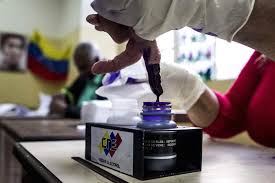The Supreme Tribunal of Justice (TSJ) endorsed the decision of the National Electoral Council (CNE) to prevent thousands of Venezuelans abroad from voting by denying them registration with the requirement that they must prove that they are legally settled in the countries where they are.
The Electoral Chamber, in its judgment number 50 of 28 March 2012, rejected the electoral-contentious recourse that representatives of the association Defender of Venezuelans Abroad (Devenex) brought on 20 October 2011 against a circular note that the Rectress Sandra Oblitas, as president of the Civil and Electoral Registry Commission, sent to the consulates. In it, the official reminded them that only Venezuelans who present their identity card, valid or expired, and a document proving that they are legally residents in that country, may register for national elections.
In the opinion drafted by Justice Juan José Núñez Calderón, it was denied that the CNE was exceeding its competences, since the document does not regulate the law «only reiterates compliance with the applicable electoral regulations in order to proceed with the registration and updating of the data of the Electoral Registry of Venezuelans residing abroad».
Article 124 of the Organic Law on Electoral Processes states: «Only voters who have residency or any other regime that denotes legal proof of residence outside Venezuela will be able to vote abroad. Likewise, the officials attached to the embassies, consulates and commercial offices will be able to vote abroad». While article 29 indicates that the identity card is the only document that will be required for those who register.
In contrast to the indications that the measure implies discrimination between the Venezuelans who are in the country and those who are abroad, the Chamber preferred to speak of a «special, differentiated regime»; and recalled that the law also limits the type of election in which voters can participate abroad (they can only vote in presidential and referendum electoral processes).
This differentiation -said- comes by «particular circumstances» for those inside and outside the country. However, he reminded them that if they return, they can register just with the ID.
Extract of the judgment
«One of the manifestations of the special regime, provided for Venezuelans abroad, is the fact that, unlike Venezuelans residing in the national territory, they will only be able to exercise their right to vote in the voting processes by means of which the President of the Republic or the members of the Latin American Parliament will be elected, as well as in the referenda processes, and not in the election of other authorities, such as governors, mayors, members of the National Assembly, Legislative Councils or Municipal Councils».
